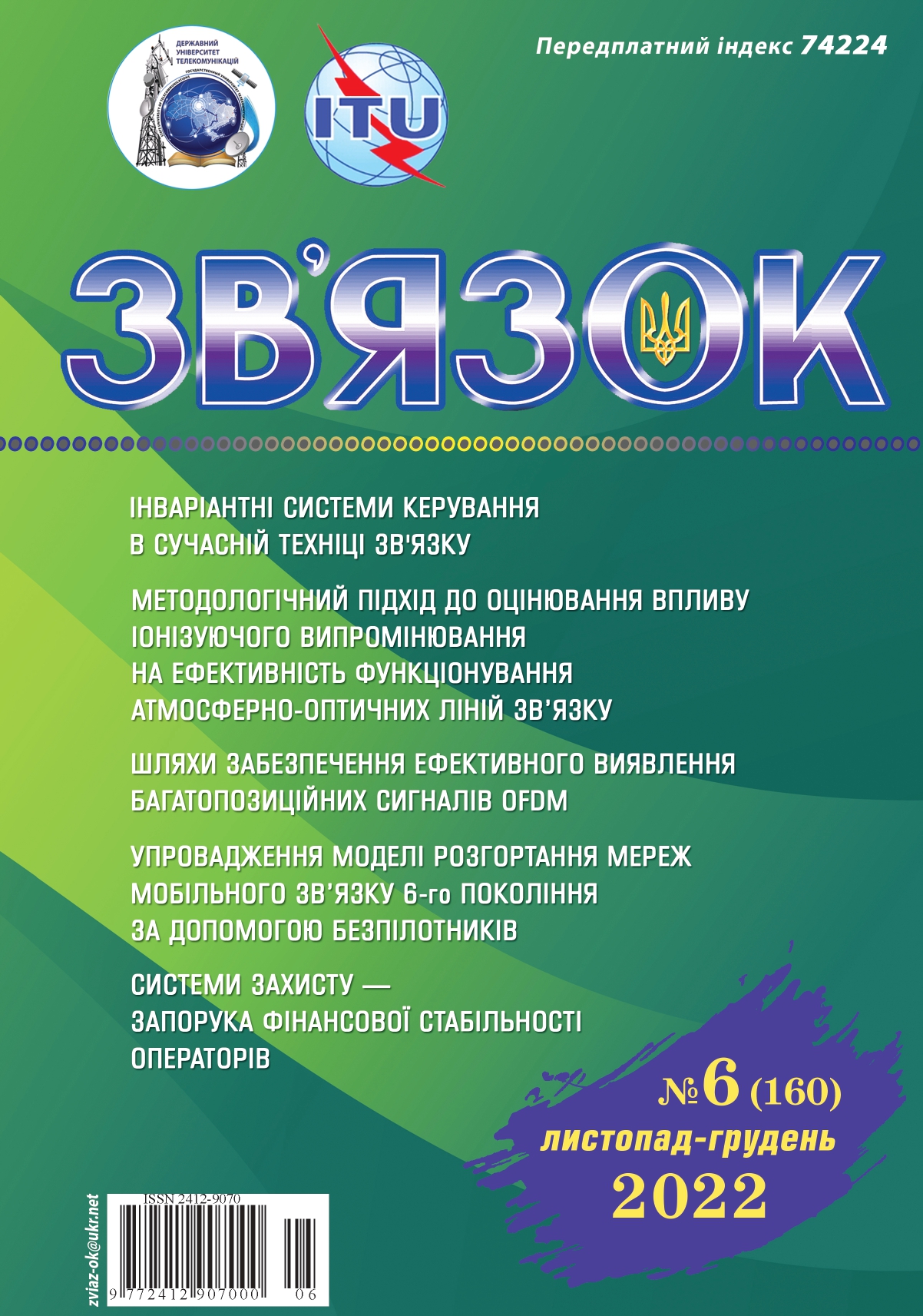Шахрайство у сфері телекомунікацій та його вплив на бізнес операторів зв’язку
DOI: 10.31673/2412-9070.2022.061720
Анотація
Наведено опис найбільш відомих видів шахрайства в мобільній мережі та їх вплив на бізнес операторів телекомунікацій. Описано найпоширеніші типи шахрайства, такі як IRSF, wangiri, interconnect bypass fraud, arbitrage, traffic pumping. В IRSF використовуються преміальні телефонні номери, які потім мимоволі набирають користувачі. Переглянуто реалізацію шахрайства на основі OTP та wangiri. Wangiri — це телефонне шахрайство, в якому зловмисники обманом змушують вас дзвонити на преміальні номери. Interconnect bypass fraud використовує різницю цін на з’єднання, щоб зробити телефонні дзвінки більш дешевшими. VoIP bypass було досліджено як тип Interconnect bypass fraud. Arbitrage — це загальна практика отримання прибутку від різниці тарифікації відстані між країнами. Traffic pumping є сумнівною практикою, за допомогою якої деякі місцеві мобільні оператори в сільській місцевості Сполучених Штатів збільшують обсяг вхідних дзвінків до своїх мереж, щоб отримати прибуток від значно збільшених компенсаційних комісій між операторами. Було зроблено такі висновки: телекомунікаційне шахрайство є дуже складним і мінливим явищем через специфіку мережі оператора. Завдяки новим технологіям і послугам, які надаються в їхніх мережах, оператори зв’язку мають адаптувати свої методи моніторингу та аналізу шахрайства з мінімальною затримкою; у розглянутих прикладах шахрайства ми бачимо, що одна шахрайська діяльність може використовувати технології реалізації кількох різних типів шахрайства. Виявлення таких дій вимагатиме гнучкого рішення, яке може адаптуватися з або без взаємодії людини; шахрайство відбувається тоді, коли жертва цього не очікує. Шахраї можуть здійснювати дзвінки за межами робочих годин абонента або дзвонити кільком абонентам протягом дня і мобільний оператор не помітить цього, доки абонент не поскаржиться чи хтось помітить дивну тенденцію. Аферисти також можуть зламувати абонентський пристрій або АТС, що абонент теж не помітить, доки не отримує рахунок за використані послуги; преміальний або сервісний номер може бути використаний шахраєм для здійснення афери. У такому разі має бути угода з оператором і компанією щодо списку дозволених чи заборонених номерів; шахрайство не обмежується лише голосовими послугами. Методи реалізації можна використовувати для мережних послуг SMS або IP.
Ключові слова: CFCA; IRSF; Wangiri; Interconnect bypass fraud; Arbitrage; Traffic pumping.
Список використаної літератури
1. Understanding international telecoms fraud // BICS [Електронний ресурс]. URL: https://www.bics.com/wp-content/uploads/2022/02/Telco-Fraud-Whitepaper.pdf
2. Putting telecom fraud loss into perspective… // CFCA [Електронний ресурс]. URL: https://cfca.org/putting-telecom-fraud-loss-into-perspective/
3. Telecommunications Fraud // EUROPOL [Електронний ресурс]. URL: https://www.europol.europa.eu/operations-services-and-innovation/public-awareness-and-preventionguides/telecommunications-fraud
4. 11 Types of Telecommunications Fraud: How to Detect & Prevent It // SEON [Електронний ресурс]. URL: https://seon.io/resources/telecommunications-fraud-detection-and-prevention/
5. Telecom Wholesale Fraud // Mobileum [Електронний ресурс]. URL: https://www.mobileum.com/products/risk-management/fraud-management/telecom-wholesale-fraud/
6. International Revenue Share Fraud (IRSF): What it is and How to Stop it // Arkose Labs [Електронний ресурс]. URL: https://www.arkoselabs.com/explained/international-revenue-share-fraud/
7. Telecom Wholesale Fraud // Mobileum [Електронний ресурс]. URL: https://www.mobileum.com/products/risk-management/fraud-management/bypass-fraud/
8. Telecom Wholesale Fraud // Mobileum [Електронний ресурс]. URL: https://www.mobileum.com/products/risk-management/fraud-management/revenue-share-fraud/

